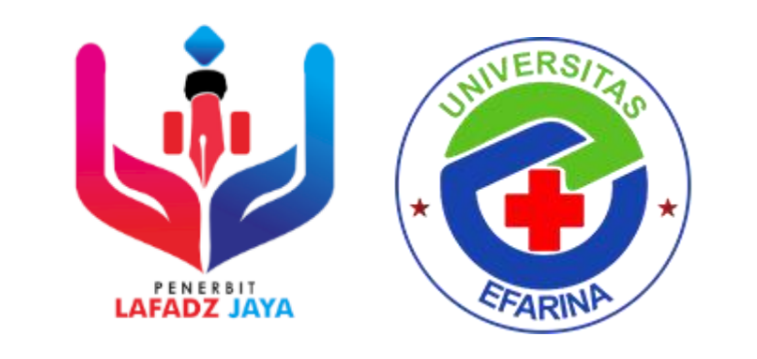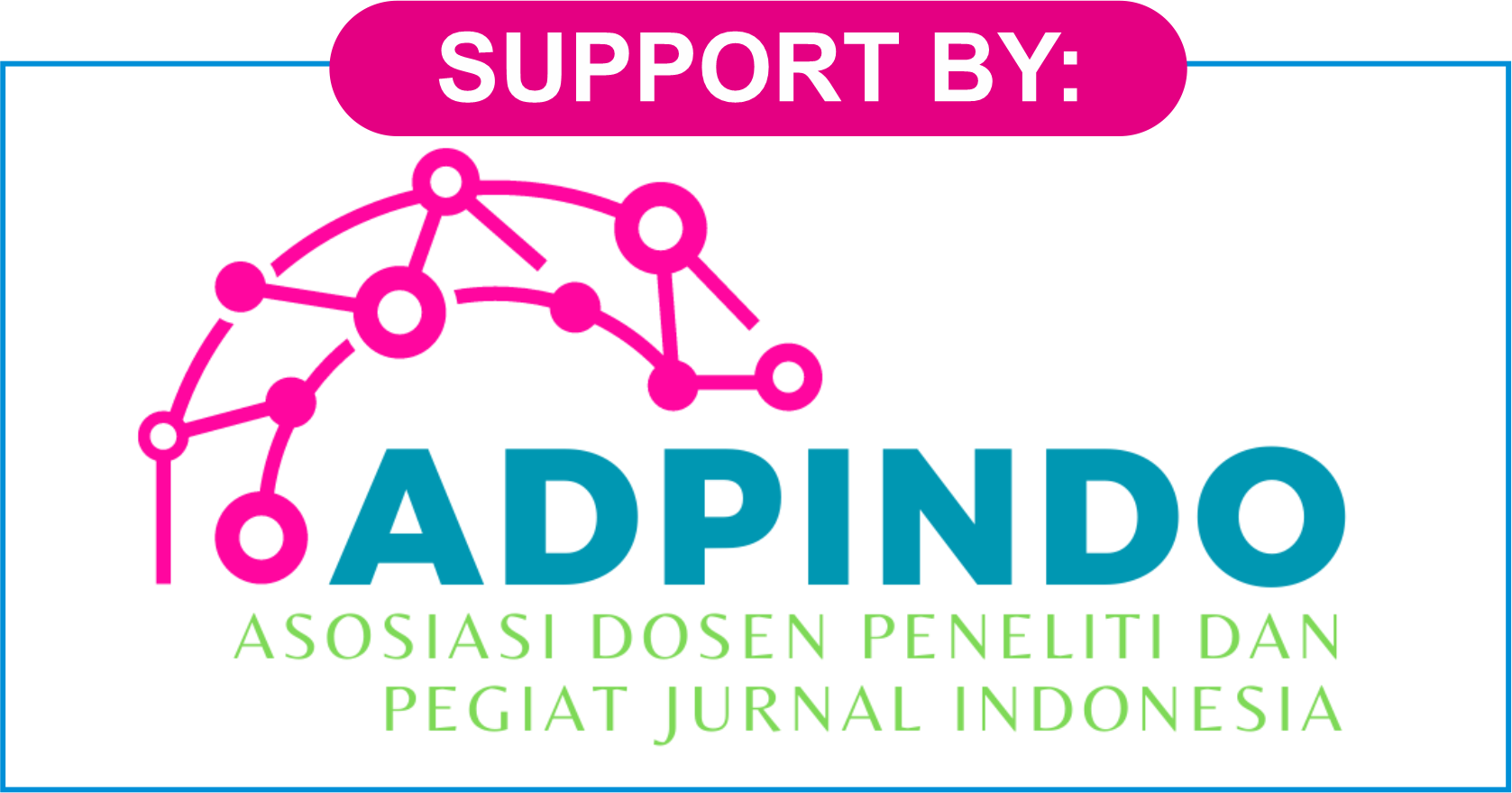HUBUNGAN DUKUNGAN SOSIAL GURU DENGAN PENYESUAIAN DIRI SISWA SMP DI PONDOK PESANTREN MUHAMMADIYAH BOARDING SCHOOL AL-AMIN BOJONEGORO
DOI:
https://doi.org/10.47353/sikontan.v2i3.687Keywords:
teacher social support, personal adjustment, junior high school student, Islamic boarding schoolAbstract
Junior high school students who are in Islamic boarding schools are vulnerable to experiencing personal adjustment problems. At that age, individuals are deal with the challenges of change and their developmental tasks. With strong support, it is hoped that it can help students in facing the challenges and personal adjustment at Islamic boarding schools. This study aims to determine the relationship between teacher social support and junior high school students' adjustment at the Muhammadiyah Islamic Boarding School Al-Amin Bojonegoro. This study uses a quantitative approach with survey research methods. The research subjects were junior high school students living in the Islamic boarding school MBS Al-Amin Bojonegoro, both male and female, totaling 157 people. The measuring tool used is The Child and Adolescent Social Support Scale (CASSS) developed by Demaray et al. (2010) and Student Adaptation to College Questionnaire (SACQ) developed by Baker et al. (1985). Both measuring tools have been adapted by researchers and adapted to the research context. The analysis technique in this study uses the Product Moment correlation technique from Pearson. The results of the analysis show that there is a positive and significant relationship (r = 0.463; p = 0.000) between teacher social support and junior high school students' adjustment at the Islamic boarding school MBS Al-Amin Bojonegoro. So the conclusion that can be taken from this study is that the higher the social support given, the higher the level of personal adjustment.
Downloads
References
Alwi, B. M. (2013). Pondok pesantren: Ciri khas, perkembangan, dan sistem pendidikannya. Lentera Pendidikan, 9(2), 205–219. https://doi.org/10.55936/mauizhah.v9i2.26
Baker, R. W., McNeil, O. V., & Siryk, B. (1985). Expectation and reality in freshman adjustment to college. Journal of Counseling Psychology, 32(1), 94–103. https://doi.org/10.1037/0022-0167.32.1.94
Claes, M. E. (1992). Friendship and personal adjustment during adolescence. Journal of Adolescence, 15(1), 39–55. https://doi.org/10.1016/0140-1971(92)90064-C
Crain, W. (2014). Theories of development: Concepts and applications. In Theories of Development: Concepts and Applications. https://doi.org/10.4324/9781315662473
Demaray, M. K., Malecki, C. K., Jenkins, L. N., & Cunningham, C. M. (2010). Social support: How to assess and include it in research on prevention and youth outcomes. In Handbook of Youth Prevention Science (pp. 165–178). Routledge.
Handono, O. T., & Bashori, K. (2013). Hubungan antara penyesuaian diri dan dukungan sosial terhadap stres lingkungan pada santri baru. Empathy: Jurnal Fakultas Psikologi, 1(2), 79–89. https://doi.org/http://dx.doi.org/10.12928/empathy.v1i2.3005
Helgeson, V. S. (2003). Social support and quality of life. Quality of Life Research, 12, 25–31. https://doi.org/https://doi.org/10.1023/A:1023509117524
Jahja, Y. (2011). Psikologi perkembangan (1st ed.). Prenadamedia Group.
Junaidi, K. (2016). Sistem pendidikan pondok pesantren di Indonesia. ISTAWA: Jurnal Pendidikan Islam, 2(2), 95–110.
Kumalasari, A. G., & Desiningrum, D. R. (2016). Hubungan antara dukungan sosial guru dengan pengungkapan diri (self disclosure) pada remaja. Jurnal Empati, 5(4), 640–644. https://doi.org/10.14710/empati.2016.15420
Maghfur, S. (2018). Bimbingan kelompok berbasis Islam untuk meningkatkan penyesuaian diri santri pondok pesantren Al Ishlah Darussalam Semarang. KOMUNIKA: Jurnal Dakwah Dan Komunikasi, 12(1), 85–104. https://doi.org/10.24090/komunika.v12i1.1307
Malecki, C. K., & Demaray, M. K. (2002). Measuring perceived social support: Development of the child and adolescent social support scale (CASSS). Psychology in the Schools, 39(1), 1–18. https://doi.org/10.1002/pits.10004
Menkes: Remaja harus sehat. (2018). Menkes: Remaja harus sehat. Kementerian Kesehatan Republik Indonesia. https://www.kemkes.go.id/article/view/18051600001/menkes-remaja-indonesia-harus-sehat.html
Menteri Kesehatan Republik Indonesia. (2014). Peraturan Menteri Kesehatan Republik Indonesia Nomor 25 Tahun 2014 Tentang Upaya Kesehatan Anak. Author.
Mesidor, J. K., & Sly, K. F. (2016). Factors that contribute to the adjustment of international students. Journal of International Students, 6(1), 262–282. https://doi.org/10.32674/jis.v6i1.569
Nishfi, S. L., & Handayani, A. (2021). Hubungan antara dukungan sosial dengan penyesuaian diri remaja di SMA Pondok Modern Selamat 2 Batang. Journal of Psychological Perspective, 3(1), 23–26. https://doi.org/10.47679/jopp.311132021
Pritaningrum, M., & Hendriani, W. (2013). Penyesuaian diri remaja yang tinggal di pondok pesantren modern Nurul Izzah Gresik pada tahun pertama. Jurnal Psikologi Kepribadian Dan Sosial, 02(03), 134–143.
Rahma, A. N. (2011). Hubungan efikasi diri dan dukungan sosial dengan penyesuaian diri remaja di panti asuhan. Psikoislamika: Jurnal Psikologi Dan Psikologi Islam, 8(2), 231–246. https://doi.org/10.18860/psi.v0i0.1551
Rahmayati, T. E., & Lubis, Z. (2013). Hubungan efikasi diri akademik dan dukungan sosial dengan penyesuaian diri. Analitika: Jurnal Magister Psikologi Uma, 5(2), 43–49.
Sarafino, E. P., & Smith, T. W. (2011). Health psychology: Biopsychosocial interactions (7th ed.). John Wiley & Sons.
Schneiders, A. A. (1960). Personal adjustment and mental health. In Child development and adjustment: Study of child psychology. Holt Rinehart and Winston.
Shofiyyah, N. A., Ali, H., & Sastraatmadja, N. (2019). Model pondok pesantren di era milenial. Belajea: Jurnal Pendidikan Islam, 4(1), 1–18. https://doi.org/10.29240/belajea.v4i1.585
Syafe’i, I. (2017). Pondok pesantren: Lembaga pendidikan pembentukan karakter. Al-Tadzkiyyah: Jurnal Pendidikan Islam, 8(1), 61–82. https://doi.org/10.24042/atjpi.v8i1.2097
Tardy, C. H. (1985). Social support measurement. 13(2), 187–202.
Wenz-Gross, M., Siperstein, G. N., Untch, A. S., & Widaman, K. F. (1997). Stress, social support, and adjustment of adolescents in middle school. The Journal of Early Adolescence, 17(2), 129–151. https://doi.org/10.1177/0272431697017002002
Zahidi, S. (2017). Pondok pesantren sebagai lembaga pendidikan alternatif. KUTTAB: Jurnal Ilmu Pendidikan Islam, 1, 50–57.
Zimet, G. D., Dahlem, N. W., Zimet, S. G., & Farley, G. K. (1988). The multidimensional scale of perceived social upport. Journal of Personality Assessment, 52(1), 30–41. https://doi.org/10.1207/s15327752jpa5201_2
Downloads
Published
How to Cite
Issue
Section
License
Copyright (c) 2024 Nida'uz Zakiyah, Nur Ainy Fardana Nawangsari

This work is licensed under a Creative Commons Attribution 4.0 International License.











